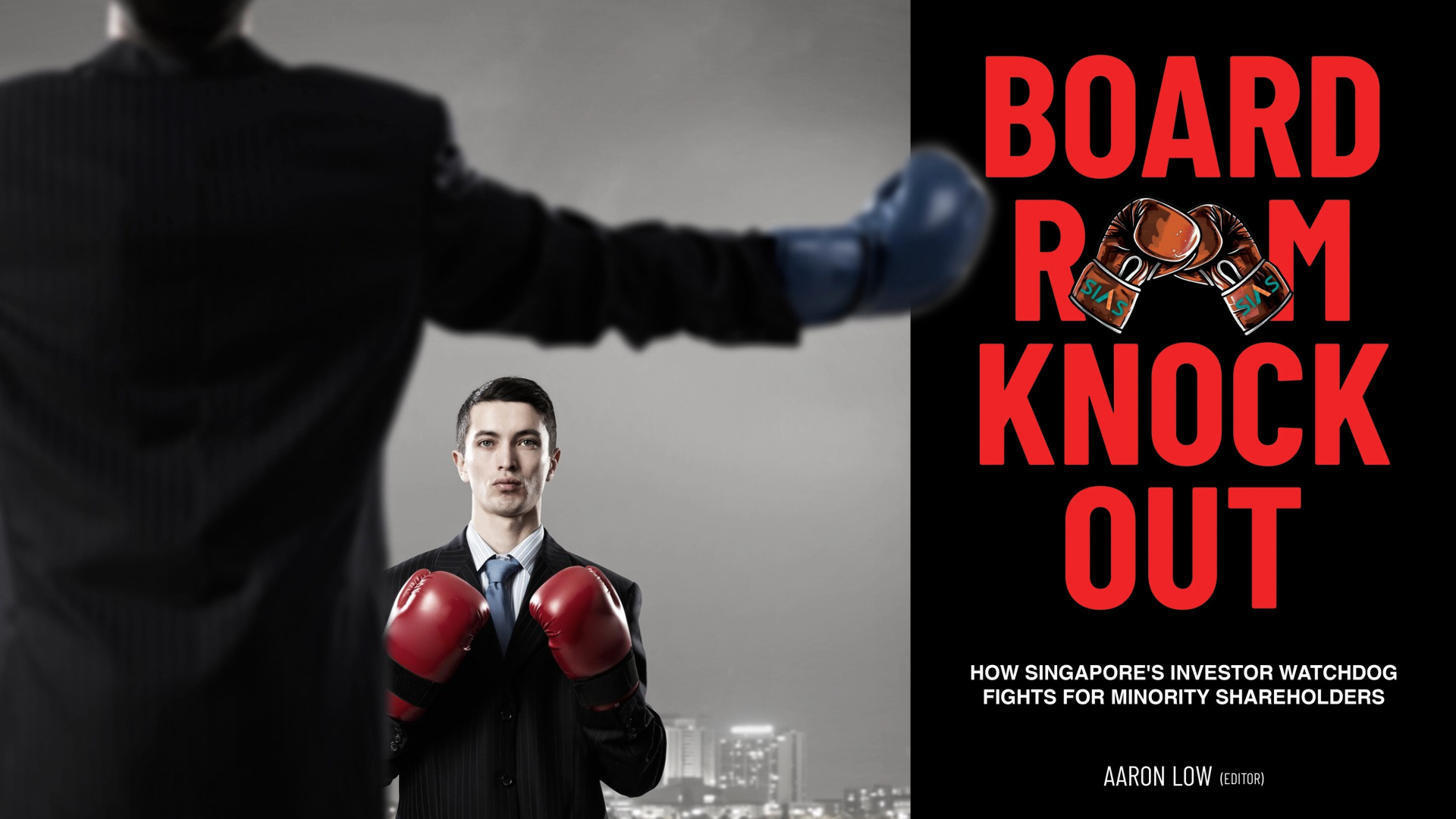The circumstances which led to the birth of the Securities Investors Association (Singapore) were quite unique. This, in turn, made its main founder equally unusual.
As a result: there now exists in this already fairly well-regulated financial centre a ground-up citizen investor watchdog with teeth and clout. So what happened?
CLOB: a word which could have come out of a Scrabble game.
Through an arrangement with the Malaysian stock exchange, Singapore investors were trading Malaysian shares in an over-the-counter market called the Central Limit Order Book (CLOB) International.
It was a happy set-up for some 172,000 investors, mostly Singaporeans. Then came the Asian financial crisis. The Malaysian ringgit was under siege.
In 1998, the Malaysian government slapped capital controls and prohibited all offshore trading of the ringgit to prevent the Malaysian currency from going under, with all the repercussions on the country’s economy.
Out of the ordinary, perhaps but within the sovereign right and purview of Kuala Lumpur.
What was more extraordinary was that KL also froze the trading of all Malaysian shares on CLOB. Billions of dollars of investment were suddenly snatched away – with no clear indication of what was going to happen to them.
In the chilling and alarming words of the then Malaysian Finance Minister Daim Zainuddin, as quoted in the just-released book Boardroom Knockout, edited by Aaron Low and published by The Nutgraf Books:
“CLOB is not our problem. We did not create it.”
No government-to-government solution. The fate of the locked-away investments would have to depend on private-sector initiatives.
It was not clear what these non-government solutions might be. Neither was it clear who nor what would be representing the interests of these investors, many of whom were regular people.
Boardroom Knockout: “Many of the victims were small-time investors who, despite actively speculating in stocks, were woefully ignorant about how the stock market worked.
Many investors bought and sold stocks on the recommendations of friends or brokers, with many speculating on rumours instead of investing based on fundamentals.”
Among them was David Gerald, a lawyer. He and two lawyer friends had invested $15,000. Even when they were “CLOBbered”, they were not worried. Lee Kuan Yew would come to the rescue, Gerald had believed.
Unfortunately, since there was to be no government involvement, it was eventually left to the investors themselves to do something about getting their investments back.
Gerald decided to take up the challenge. He had seen unfairness and injustice as a boy in Sri Lanka. He was passionate about standing up for the underdog. He learnt from working with the brilliant David Marshall that “if a person has a case, you fight to the hilt”.
Gerald decided to fight the good case. The twist was that he was doing all this at the tender age of 55. He got a small group of like-minded individuals to form SIAS.
With more than 48,000 members on board, he and his pro-tem quickly held its first press conference and from the outset made it clear that his preferred working style was to be a partner to seek practical and fair solutions rather than be confrontationist.
Thus began a tug-of-war between the SIAS and the powers that be in Malaysia, who obviously could not be allowed to get away with the excuse that their hands were tied.
Fortunately, Gerald was astute enough to realise this battle to regain the CLOB shares would also have to be fought in the court of public opinion.
With each indication of stonewalling or dragging of feet by KL, Gerald would turn to the media to lay out his case. He knew full well that transparency and reputation were vital currencies in world finance.
SIAS finally got the breakthrough on Feb 25, 2000, with two credible KLSE/SGX solutions to the CLOB issue.
David Gerald and the SIAS went on to fight other battles on behalf of investors who now know they will have someone to count on in any David and Goliath contest.
Tan Bah Bah is a former senior leader writer with The Straits Times. He was also managing editor of a magazine publishing company

